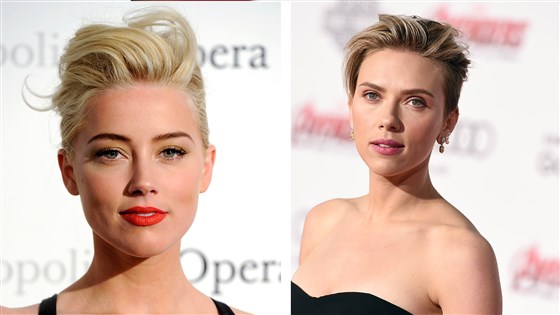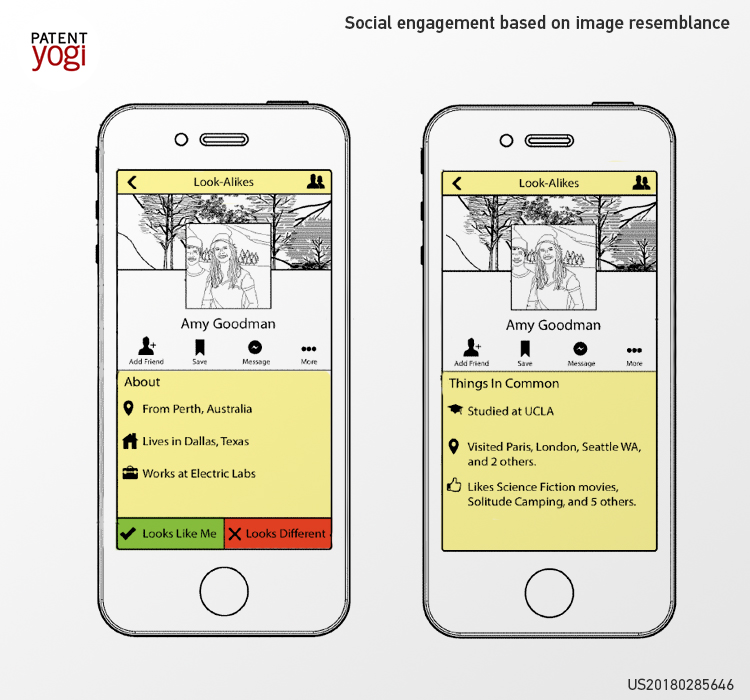Doppelgangers are creatures mentioned in mythology that are look-alikes of an individual. With mentions in Egyptian, Greek, Finnish, and even German mythology, doppelgangers were mostly described as evil spirits and it was considered a misfortune for a person to see or meet their doppelganger. While these may be myths, individuals with physical and facial features similar to each other do exist.
For most people, it would be a rare occurrence to see a look-alike in real life. The chances of finding look-alikes increase many folds provided a large enough database of faces is available. However, no one has tackled the problem finding look-alikes using technology till now. Since Facebook has one of the largest databases of human faces, they have invented technology to find people who look-alike and allow them to connect with each other on Facebook. PatentYogi team discovered a patent application from Facebook that discloses details of this technology.

PATENTED TECHNOLOGY
According to the patent application, the technology includes analyzing facial features of users’ images, including distinct regions, features, characteristic of faces etc. Thereupon, a similarity or likeness is found between facial features of two or more users either in mathematical, or observational terms.
Further, a mathematical resemblance score is determined between two or more users based on facial features of the users, and a likeness is determined to be present, if the mathematical resemblance score is above a pre-determined threshold value.
In another instance, apart from facial resemblance, a commonality score is used to organize the presentation of look-alike users. For example, mutual attributes such as interests, experiences, education, locations, etc. are considered, and the commonality score is determined. Accordingly, if two users are look-alikes of a user but have different commonality scores, the user is presented the look-alike users in a descending order of commonality.

Further, Facebook will allow users to validate the accuracy of a look-alike user. For example, you may indicate whether another user looks similar to you or not, and even rank the look-alike users based on similarity. This data will then be used by Facebook to increase the accuracy of the algorithm to determine look-alike users, providing more accurate results as time goes on.
WHAT IS YOUR TAKE?
The patent application mentions that individuals have a natural affinity for people that look like them. According to one explanation for this phenomenon, when you view another individual that has similar attributes as you, you see a reflection of yourself, which triggers an instinctual connection, even with complete strangers. Implementation of this technology, even though has no foreseeable world-changing features, it may still be fun.
As a repercussion, it may be amusing if Facebook matches two users determined to be look-alikes while being of the opposite gender. It may also be entertaining to find famous doppelgangers of oneself.
In some cases, Facebook may also match long-lost twins or separated family members based on similarity of facial features. What’s more, unlike some obscure patents, this technology seems to be implementable in the near future. So, what’s your take? Can you think of more funny scenarios arising from this feature? Let us know down below.
Publication Number: US20180285646
Patent Title: Social engagement based on image resemblance
Publication date: 2018-10-04
Filing date: 2017-04-03
Inventors: Shivani Jalan
Original Assignee: Facebook Inc
US20180285646


